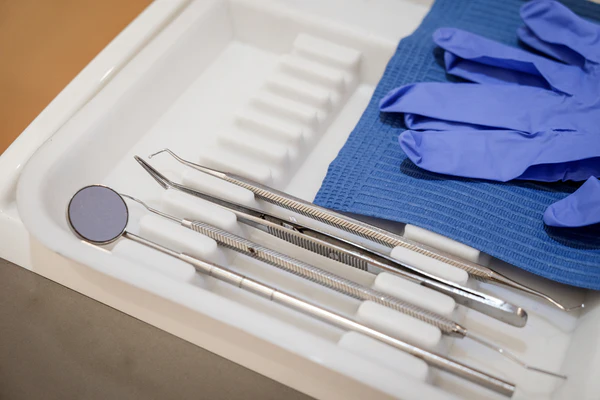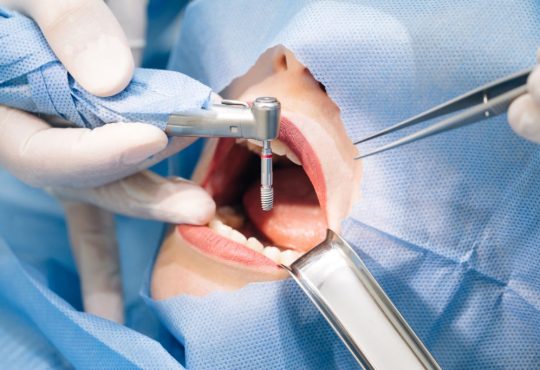
Precision in Practice: The Essential Guide to Dental Medical Instruments and Choosing the Right Supplier
When it comes to dentistry, precision isn’t a luxury—it’s a requirement. Whether you’re performing a routine cleaning or a complex oral surgery, the quality and reliability of your instruments directly impact patient outcomes and practitioner efficiency.
Yet, many dental practices overlook a critical part of clinical success: sourcing instruments from a trusted dental instrument supplier.
In this guide, we’ll explore the most essential dental medical instruments, how their quality affects daily operations, and what to look for when choosing the right supplier for your practice.
Why Dental Instruments Matter More Than Ever
The dental industry is evolving rapidly, with new technologies and patient expectations reshaping how care is delivered. From ergonomic handpieces to micro-detailed scalers, modern dental tools are designed to improve both patient comfort and clinical outcomes.
However, the sophistication of dental procedures is only as strong as the instruments behind them.
Low-grade or poorly maintained tools can lead to:
- Inefficient procedures
- Increased chair time
- Cross-contamination risks
- Faster wear-and-tear
- Patient discomfort or injury
A reliable medical instrument supplier helps dental professionals avoid these pitfalls by providing tools that are durable, ergonomically designed, and made from high-quality materials.
Core Categories of Dental Medical Instruments
Let’s take a closer look at the essential tools used in most dental practices and how their design impacts performance.
1. Examination Instruments
These tools are foundational for diagnostics and routine checkups:
- Dental Mirror: Allows indirect vision and light reflection in the oral cavity.
- Explorer (Sickle Probe): Detects cavities, calculus, and irregularities.
- Cotton Pliers: Used for placing and removing small items like cotton rolls.
High-quality versions of these tools reduce eye strain and wrist fatigue while improving visibility and precision.
2. Periodontal Instruments
For hygiene, scaling, and root planing procedures:
- Scalers and Curettes: Remove calculus and plaque from teeth surfaces and beneath the gum line.
- Periodontal Probes: Measure the depth of gingival pockets.
Premium periodontal instruments are crafted with ultra-fine tips and balanced handles for improved tactile sensitivity—a must for accurate diagnosis and effective treatment.
3. Restorative Instruments
Used in procedures like cavity fillings and crown work:
- Excavators: Remove decayed dentin.
- Burnishers and Carvers: Shape and smooth dental restorations.
- Pluggers/Condensers: Compact filling material into cavity preparations.
Precision is key here. An ergonomic grip and perfectly calibrated edges ensure smoother procedures and long-lasting restorations.
4. Surgical and Extraction Instruments
Used in more advanced or surgical procedures:
- Elevators and Forceps: For tooth extractions and surgical mobilization.
- Bone Rongeurs and Scissors: For cutting bone or soft tissue.
- Needle Holders: For suturing wounds or incisions.
Surgical dental tools must be made of OR-grade stainless steel, offering strength, corrosion resistance, and reusability. Your medical instrument supplier should clearly differentiate between standard and surgical-grade tools.
5. Endodontic Instruments
For root canal therapy and pulp removal:
- Files and Reamers: Clean and shape the root canal.
- Spreaders and Pluggers: Help in filling the canal with sealing material.
Due to the delicate nature of endodontic work, these tools must have fine, resilient tips and consistent calibration.
What to Look for in a Dental Medical Instrument Supplier
Not all suppliers are created equal. When choosing a dental instrument supplier for your dental practice, consider the following:
1. Material Quality
Ensure instruments are made of:
- High-grade German or U.S. stainless steel
- Titanium for lighter and more flexible use
- Autoclavable polymers where appropriate
These materials ensure instruments withstand sterilization, maintain sharpness, and resist corrosion.
2. Product Range and Specialty Offerings
A reliable supplier should offer:
- Full sets of dental instruments
- Instruments tailored for pediatric or geriatric care
- Kits for surgical, endodontic, and implantology procedures
Bonus if the supplier allows custom set configuration so you can tailor orders to your practice’s exact needs.
3. Sterilization Compatibility
Instruments must be designed to withstand repeated autoclaving without degrading. This means:
- Non-porous handles
- Joints that remain smooth post-sterlization
- No discoloration or rusting
The best suppliers provide sterilization protocols and maintenance guidelines to help extend tool lifespan.
4. Ergonomics and User Comfort
With dental professionals performing repetitive motions for hours a day, ergonomically designed instruments reduce the risk of carpal tunnel, fatigue, and grip strain.
Look for:
- Lightweight instruments
- Non-slip grips
- Balanced weight distribution
5. Transparent Warranty and Service
Top-tier suppliers provide:
- Clear warranty terms (often lifetime for defects)
- Sharpening or reconditioning services
- Responsive support for returns or exchanges
Suppliers like Sklar Instruments offer a lifetime guarantee on many tools, ensuring peace of mind and long-term cost efficiency.
6. Training Resources and Support
Education matters—especially when onboarding new staff or introducing new tools. Ask if your supplier provides:
- Instrument handling and care guides
- Technique videos
- In-office support or digital training sessions
This value-added support separates strategic partners from transactional vendors.
Sustainability and Compliance: The New Normal
Today’s dental practices must also consider sustainability and regulatory compliance when sourcing instruments.
A forward-thinking medical instrument supplier should align with your values by offering:
- Reusable instrument options
- Eco-friendly packaging
- Compliance with ADA, ISO, and FDA standards
Final Thoughts
Choosing the right dental instruments isn’t just about price—it’s about performance, safety, and patient care. With the dental field evolving rapidly, working with an experienced dental instrument supplier like Sklar Instruments gives you access to high-precision tools, unmatched support, and long-term value.
Your instruments are an extension of your practice’s professionalism. Invest wisely, and they’ll help you deliver care that’s precise, efficient, and trusted by patients.




